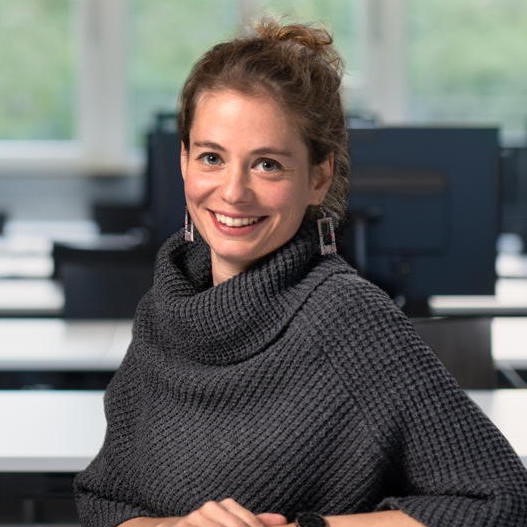Prof. Dr. Anikó Hannák (English only)
Anikó Hannák is an Assistant Professor at the Computer Science Department of the University of Zurich. Her main interest is in computer-based social sciences, especially the co-evolution of online systems and their users. Broadly speaking, her work investigates the potential negative consequences of big-data algorithms used in areas such as web search, online shops and online labour markets.
Anikó Hannák received her PhD from the College of Computer & Information Science at Northeastern University advised by Alan Mislove and David Lazer.
Short interview with Prof. Dr. Anikó Hannák
What influenced your career decisions?
I didn’t really think very much ahead, I didn’t know I would end up in academia. But I always enjoyed environments where people were motivated by brain-storming, and digging as deep as possible when they encountered questions or challenges. I also really enjoy that it never gets boring in the academic world, you have to adapt to new roles and activities with every career step.
What achievement in your life are you particularly proud of?
I am pretty proud that I have a computer science PhD. I actually studied theoretical mathematics and sociology before that. Programming or even using a terminal window were all new to me when I entered the PhD program in Boston. And while everyone says if you know math, programming is easy, I had this deep fear of computers and technology. It took a lot of work to catch up with the PhD-level classes but after doing that I felt I could probably learn anything.
Where do you get inspiration from for your work?
My work is primarily driven by investigating real-world phenomena and problems that we can attribute to emerging new technologies. Often I investigate problems that are known to exist in the offline world, such as discrimination, societal segregation or price discrimination, and see how certain platforms or apps contribute to it. I am also lucky in that whenever I tell people what my research is about, they tell me their latest thoughts on what is scary or strange about some technology they use.
According to your opinion, what will distinguish our Faculty in five years' time?
Our Faculty is among the firsts to recognize that developing the best performing technological products is not enough anymore. We need to understand the social theory behind how people use them, and how it effects social, economical and political sectors at large. I believe that focusing on topics around digital societies and supporting interdisciplinary collaborations is the right way to go forward.
Why would you recommend studying at our Faculty to young women holding their Matura (Swiss university entry qualification)?
As a woman in computer science, I placed huge emphasis on joining a welcoming environment that encourages diversity and inclusion. I felt that UZH as an institution places emphasis on these values, and that the Faculty members of my department are very aware of gender-diversity problems both in their every day behavior and in their teaching practices.
